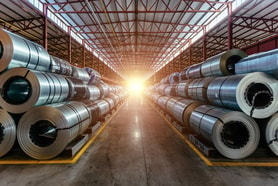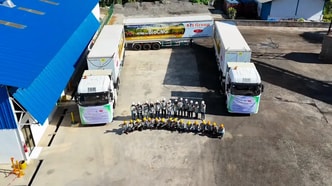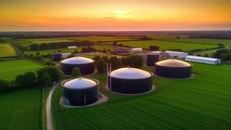Emerging markets seek policy reform and investment for biogas
Emerging economies are urging stronger international collaboration, policy reform, and investment to unlock the full potential of biogas as a decentralised green energy option.
That was the message from the ‘Unlocking Biogas Potential in Emerging Economies’ session at the World Biogas Summit 2025, which brought together speakers from Mexico, South Africa, Singapore, India, and Argentina. Participants shared progress and the most persistent barriers across their respective regions.
Dr Abel Clemente Reyes, President of the Asociación Mexicana de Biomasa y Biogás, who presented on Mexico’s evolving biogas policy, said, “The top priority at this very moment is to take advantage of the new law,” referring to the country’s recently updated biofuels rules.
... to continue reading you must be subscribed
























